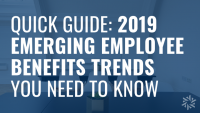New rules released last month by the IRS set a strict definition of affordable health insurance that will prevent many families with modest incomes from obtaining federal financial assistance.
Under health care reform, low and moderate income workers with job-based coverage that is deemed unaffordable can opt out and turn to the marketplaces (exchanges) to buy coverage with government subsidies.
The final rule however, defines the standard of affordability more narrowly, at an amount less than 9.5% of household income to cover just that employee’s share of premium costs-not what he or she must pay to cover their entire family, which is generally more expensive. Furthermore, the IRS said that it will look at the cost of coverage only for an individual, not for a family, when deciding if an employer’s health plan is affordable.
In a recent New York Times article,
“In 2012, according to an annual survey by the Kaiser Family Foundation, total premiums for employer-sponsored health insurance averaged $5,615 a year for single coverage and $15,745 for family coverage. The employee’s share of the premium averaged $951 for individual coverage and more than four times as much, $4,316, for family coverage.
Under the I.R.S. rule, such costs would be considered affordable for a family making $35,000 a year, even though the family would have to spend 12 percent of its income for full coverage under the employer’s plan.
The tax agency proposed this approach in August 2011 and made no change in the definition of “affordable coverage” despite protests from advocates for children and low-income people and many employers. Employers did not want to be required to pay for coverage of employees’ dependents. But they said that family members should have access to subsidies so they could buy insurance on their own.
In short-if the employer-sponsored plan is considered affordable for the employee–it therefore meets the requirements as set forth by the Patient Protection and Affordable Care Act, even if the cost of ensuring the family under this plan exceeds 9.5% of the household income.
But wait-
“Under the law, people who go without insurance will generally be subject to tax penalties. In a separate proposed regulation issued on Wednesday, the Internal Revenue Service said that the uninsured children and spouse of an employee would be exempt from the penalties if the cost of coverage for the entire family under an employer’s plan was more than 8 percent of household income.”
Yet that still leaves children and spouses uninsured.
Exemptions to the federal law’s rule requiring most Americans to carry health insurance include the possibility that an individual cannot afford coverage. Other exemptions include:
- Spending less than three consecutive months without coverage
- Hardship
- Religious beliefs
What do you think of the final rules? How do you suppose this will impact employers and their employees?


